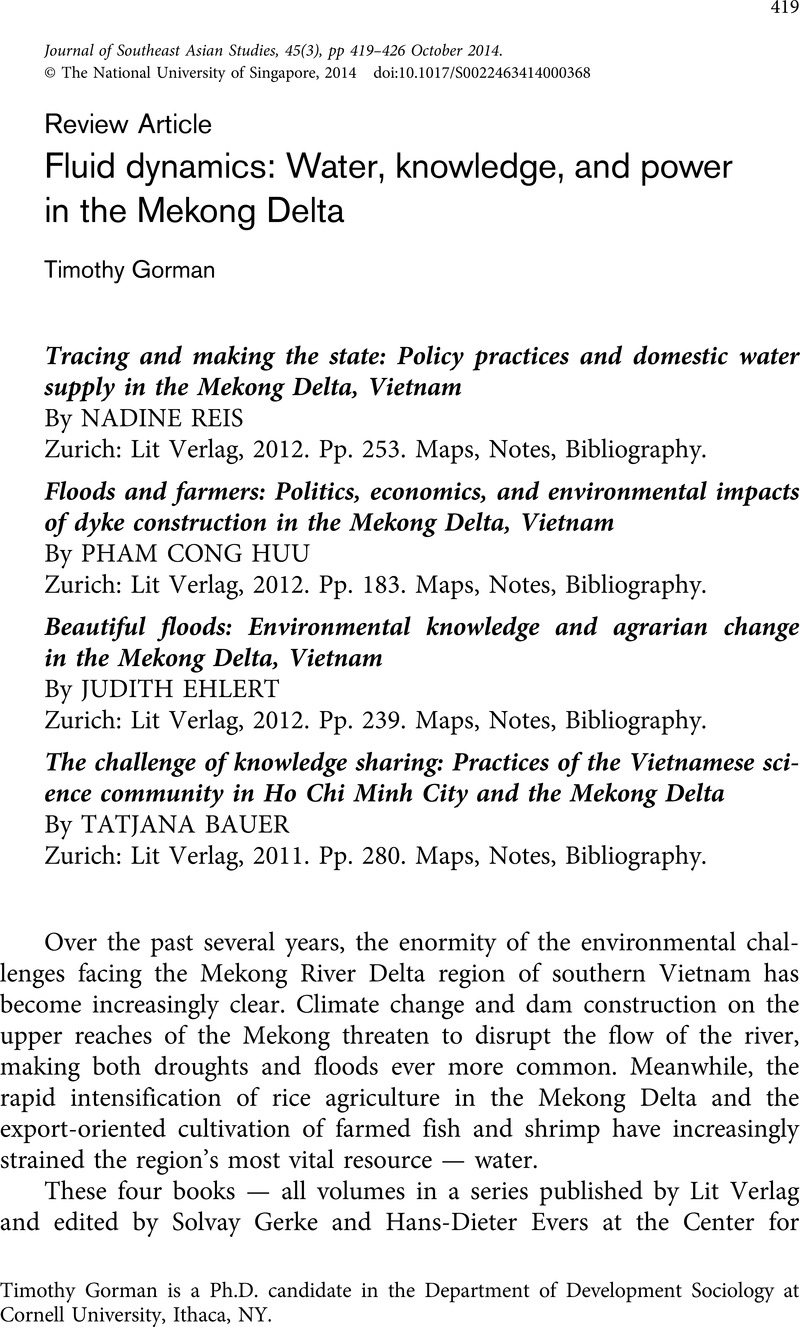No CrossRef data available.
Article contents
Fluid dynamics: Water, knowledge, and power in the Mekong Delta
Published online by Cambridge University Press: 03 September 2014
Abstract

- Type
- Review Article
- Information
- Copyright
- Copyright © The National University of Singapore 2014
References
1 Thayer, Carlyle, ‘Political legitimacy in Vietnam: Challenge and response’, Politics & Policy 38, 3 (2010): 423–4CrossRefGoogle Scholar.
2 Kerkvliet, Benedict J., The power of everyday politics: How Vietnamese peasants transformed national policy (Ithaca, NY: Cornell University Press, 2005)Google Scholar.
3 On the social and cultural history of the Mekong Delta, see Taylor, Philip, Fragments of the present: Searching for modernity in Vietnam's south (Honolulu: University of Hawai'i Press, 2001)Google Scholar; Hue-Tam Ho Tai, Millenarianism and peasant politics in Vietnam (Cambridge, MA: Harvard University Press, 1983)Google Scholar; Water frontier: Commerce and the Chinese in the lower Mekong region, 1750–1880, ed. Nola Cooke and Tana Li (Singapore: Singapore University Press, 2004)Google Scholar. On the environmental history of the region more specifically, see Brocheux, Pierre, The Mekong Delta: Ecology, economy, and revolution, 1860–1960 (Madison, WI: Center for Southeast Asian Studies, University of Wisconsin-Madison, 1995)Google Scholar; Biggs, David, Quagmire: Nation-building and nature in the Mekong Delta (Seattle: University of Washington Press, 2010)Google Scholar.




